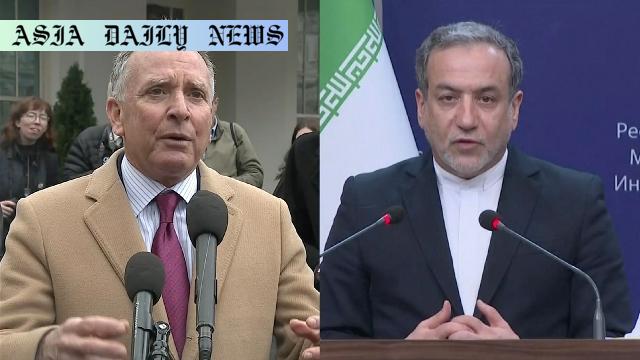Nuclear Talks: The US and Iran are reportedly planning to resume negotiations concerning Iran’s nuclear program next week in Oslo.

Exclusive: Renewed US-Iran Nuclear Talks Expected Next Week
An Overview of the US-Iran Nuclear Standoff
The United States and Iran have long been entangled in geopolitical tensions centered on Iran’s nuclear program. The upcoming talks in Oslo between the US delegation, led by Special Envoy to the Middle East Steve Witkoff, and Iranian Foreign Minister Abbas Araghchi, mark what could be a pivotal step forward. These discussions, if confirmed, would represent a significant milestone in diplomatic efforts after a hiatus caused by military confrontations earlier this year.
Recent Developments Leading to Renewed Talks
The talks come at a critical time. Tensions have heightened since the US launched targeted strikes on Iran’s nuclear facilities last June. Following these events, Iran took a bold step by suspending its cooperation with the International Atomic Energy Agency (IAEA), a move that drew sharp criticism from the United States. Meanwhile, US President Donald Trump hinted at an openness to dialogue, noting Iran’s potential willingness to engage in talks. Trump’s comments, “Iran does want to speak, and I think they’d like to speak to me,” reflect a nuanced approach, balancing diplomacy with strategic pressure.
The Role of the International Community
As the world closely watches the interplay between the US and Iran, the international community plays a central role in influencing outcomes. Norway’s decision to host these talks underscores its commitment to facilitating global peace and security. By providing a neutral platform, Oslo offers the opportunity for both sides to reestablish trust and find common ground. The suspension of IAEA cooperation by Iran has international implications, potentially disrupting global nuclear oversight efforts. Thus, the resumption of dialogue could prove vital in defusing tensions and restoring international cooperation.
Expectations and Challenges Ahead
Despite the potential significance of these talks, obstacles remain. Iran’s decision to halt IAEA collaboration signals a hardened stance that may complicate negotiations. Moreover, the legacy of mistrust between the two nations could hinder constructive dialogue. However, both countries have much to gain from reaching a deal. For the US, a resolution could strengthen its Middle Eastern foreign policy strategy, while for Iran, sanctions relief and better global standing remain critical motivations.
Conclusion
The upcoming nuclear talks in Oslo are a momentous opportunity for the US and Iran to address longstanding disagreements and pave the way for increased stability in the region. While challenges persist, the mutual benefits of a successful agreement make this dialogue an endeavor worth pursuing. As details of the meeting unfold, the world remains hopeful for a positive outcome.
Commentary
Personal Commentary: US-Iran Nuclear Talks in Oslo
The Importance of Renewed Diplomatic Engagement
The announcement of potential US-Iran nuclear talks in Oslo brings a fresh wave of cautious optimism amidst a backdrop of uncertainty. For years, the relationship between these two nations has been fraught with hostility, mistrust, and persistent geopolitical challenges. This renewed attempt at dialogue signals a willingness by both parties to revisit their positions and, hopefully, strive toward a sustainable resolution. Diplomacy is always the preferred method to tackle such complex issues, and these talks could serve as a critical turning point in their strained relations.
Challenges Surrounding the Oslo Talks
While the decision to hold talks is commendable, it is essential to recognize the hurdles that lie ahead. Iran’s decision to suspend International Atomic Energy Agency (IAEA) cooperation complicates transparency efforts and raises legitimate concerns about its nuclear ambitions. Furthermore, the mistrust accumulated over years of sanctions, military strikes, and conflicting agendas casts a long shadow over the negotiations. Achieving meaningful progress will require both sides to compromise while adhering to essential principles of transparency and accountability.
Conclusion: A Window of Opportunity
There is no denying that these talks represent a unique opportunity. If approached with pragmatism, mutual understanding, and a shared commitment to peaceful coexistence, they could mark the beginning of a new chapter for US-Iran relations. However, if mishandled, this could lead to a further escalation of tensions. As with any diplomatic effort, the outcome hinges on unwavering political will, strategic patience, and the wisdom to prioritize long-term peace over short-term gains. Let us hope that both nations rise to the occasion.


